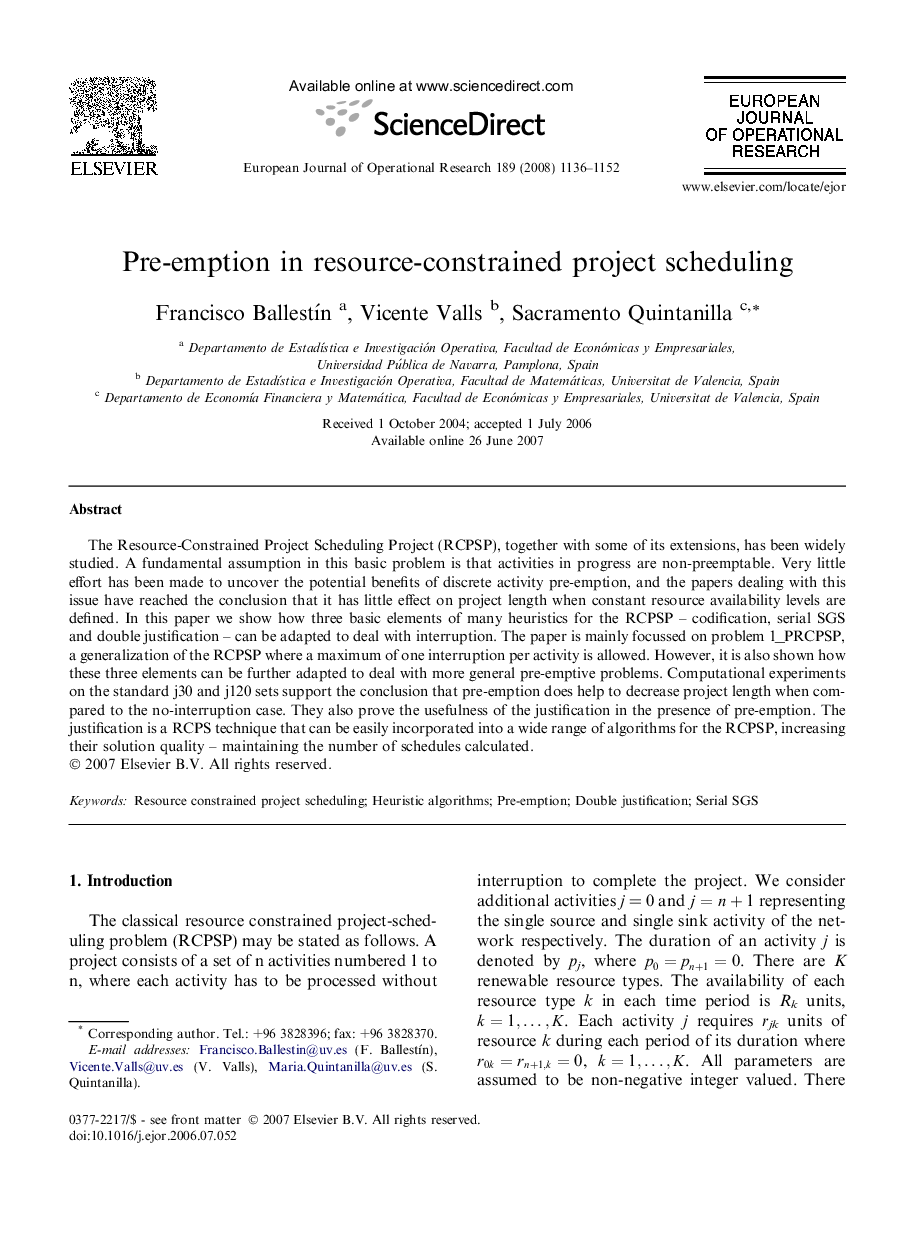| Article ID | Journal | Published Year | Pages | File Type |
|---|---|---|---|---|
| 482025 | European Journal of Operational Research | 2008 | 17 Pages |
The Resource-Constrained Project Scheduling Project (RCPSP), together with some of its extensions, has been widely studied. A fundamental assumption in this basic problem is that activities in progress are non-preemptable. Very little effort has been made to uncover the potential benefits of discrete activity pre-emption, and the papers dealing with this issue have reached the conclusion that it has little effect on project length when constant resource availability levels are defined. In this paper we show how three basic elements of many heuristics for the RCPSP – codification, serial SGS and double justification – can be adapted to deal with interruption. The paper is mainly focussed on problem 1_PRCPSP, a generalization of the RCPSP where a maximum of one interruption per activity is allowed. However, it is also shown how these three elements can be further adapted to deal with more general pre-emptive problems. Computational experiments on the standard j30 and j120 sets support the conclusion that pre-emption does help to decrease project length when compared to the no-interruption case. They also prove the usefulness of the justification in the presence of pre-emption. The justification is a RCPS technique that can be easily incorporated into a wide range of algorithms for the RCPSP, increasing their solution quality – maintaining the number of schedules calculated.
